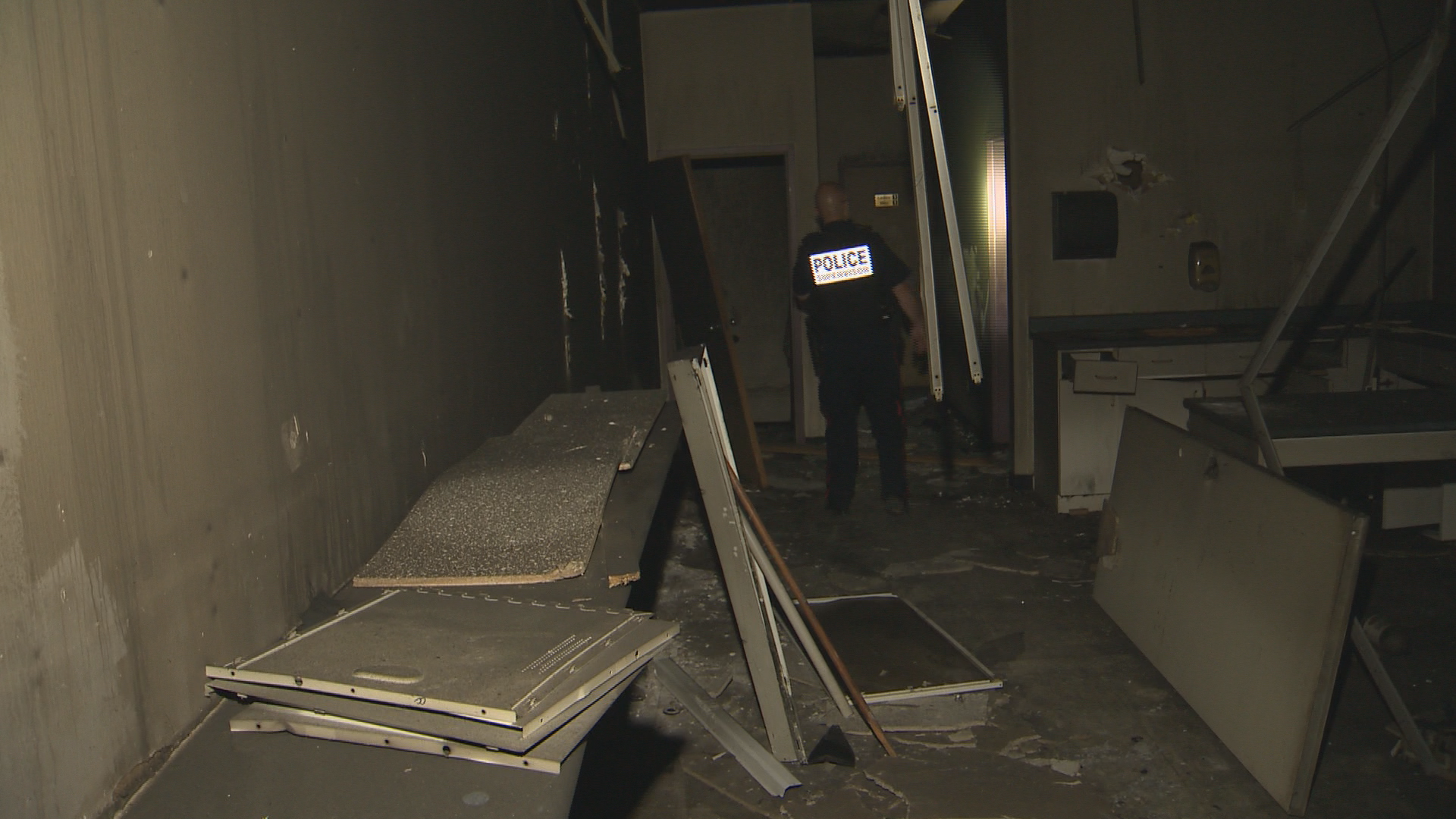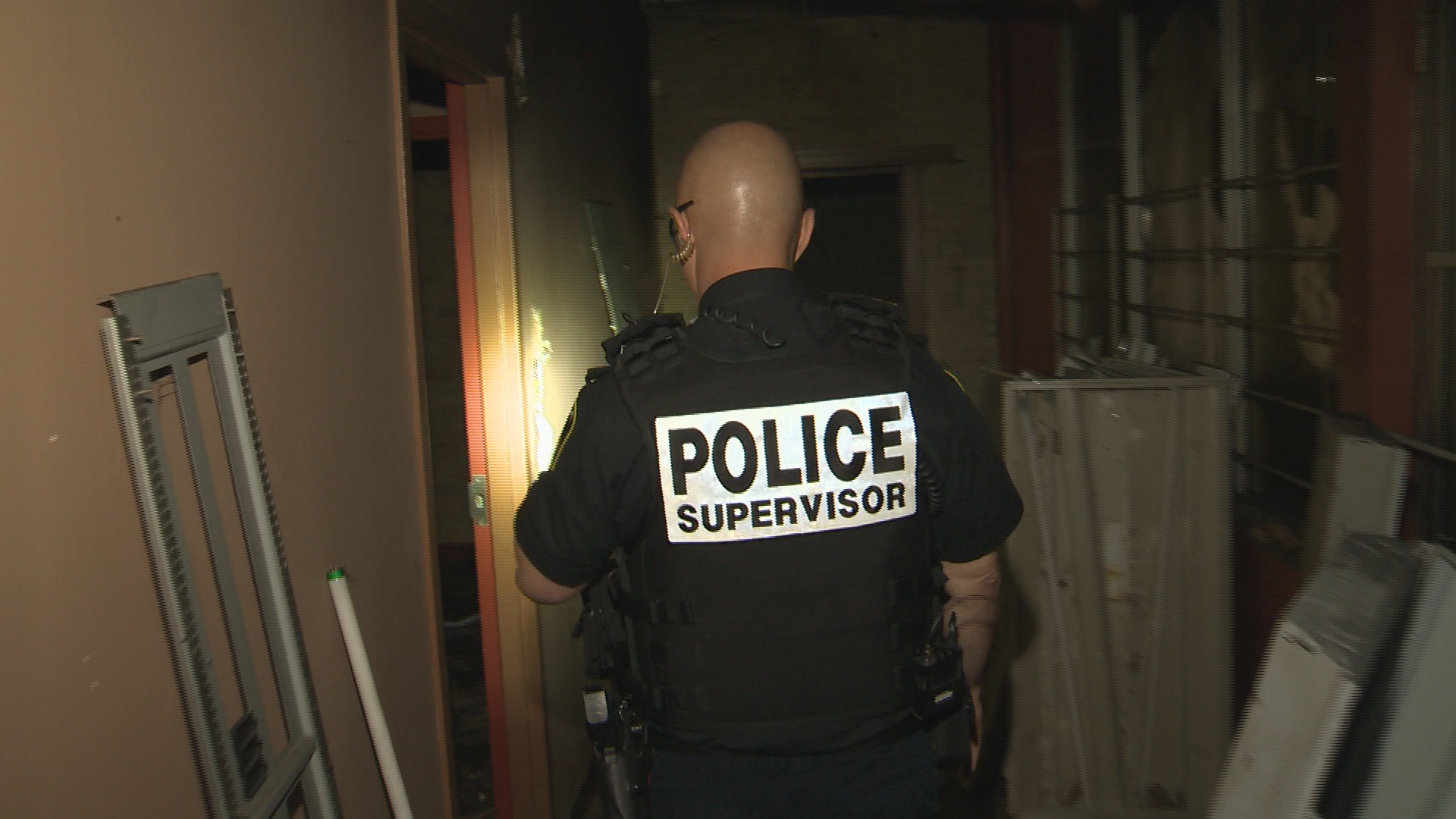Winnipeg is casting a wider net to try to find solutions to its growing problem with derelict and vacant buildings.

It’s been an issue emergency responders and city crews have spent years trying to get under control, but it continues to get worse.
READ MORE: Derelict buildings in Winnipeg pose major risks to communities, first responders
“There are so many properties that are boarded up, unoccupied,” Winnipeg police Staff Sgt. Rob Duttchen told Global News. “Even if we had a ten-person unit working eight-hour days, they probably couldn’t get to all of the properties every week.”
The city is currently enforcing its Vacant Building By-Law on 615 properties around Winnipeg.
“It’s basically a property that isn’t currently being occupied or used,” City of Winnipeg by-law enforcement coordinator John Burney said. “It’s a variety of properties. Everything from (where) they’re basically a burnt-out husk all the way to completely conventionally secured full windows and doors and fully maintained.”
There is a wide range of reasons a building or property can make it onto the list that is enforced by by-law officials.
“The entire incentive of the Vacant Building By-Law is to incentivize not having vacant buildings,” Burney said.
“We want sustainable communities, so we want them occupied or we want them demolished so that they can be rebuilt into something that can be used in the neighbourhood.”
City police, fire and by-law departments are now working on a collaborative approach to try to address the issue.

Each has been compiling lists of vacant and derelict buildings around the city but now the resources are being pooled together to come up with a better action plan to fix the problem.
It starts with tracking and prioritizing that list of problem properties. Police help identify some as officers attend situations where there is a current criminal element.
Fire crews are able to signal some vacant properties where they attend to get blazes under control but they are also trying to be proactive.

Get daily National news
“We’re putting some light-duty personnel on the street who aren’t able to go into fire operations right now to keep up with tracking and monitoring of unsecure buildings and report those to community by-law so that they can manage them,” said WFPS Asst. Chief Scott Wilkinson.
Currently, there are just five city inspectors with the by-law department to work on the issue.
“Getting the inspections done is the number one priority so that we can get the up-to-date information about what’s the current condition of those properties,” Burney said.
The city’s Vacant Building By-Law allows the city to issue fines for boarded-up buildings and conduct annual inspections, with an option to issue tickets for violations.
Owners of vacant buildings are required to secure their properties to ensure people cannot enter. To board up their properties, they must obtain a permit, which costs $2,517 for the first year and increases by roughly $1,800 each year. Owners who fail to get a permit can be fined and have the fee applied to their property taxes.
“The maintenance of a property, that comes down to the property owner,” Burney said. “They’re ultimately responsible for their property. So what we’re going to do is inform that owner of their responsibilities, make sure that they know what they need to do and give them the opportunity to do it.“
The city is looking at possibly increasing fines and fees to incentivize owners to get moving on repairs.
“We’re evaluating our boarding standards for securement, whether they’re robust enough and options towards service fees for repeat fires and buildings that aren’t being secured or aren’t being kept secured,” Wilkinson said.
They are also looking at what other jurisdictions are currently doing, like Edmonton, which has an escalating approach.
Edmonton Fire Rescue Services has implemented a progressive process to securing vacant properties. Once the property is boarded up, if it is breached the owner receives an order to apply the next phase of progressive security.
Once implemented, Phase 1 and Phase 2 must be maintained in conjunction with the subsequent phases.
The property owner will be responsible for covering all costs associated with securing their property.
“What we’re hoping is that we learn the best practices and we don’t have to repeat some of the errors that occurred in those jurisdictions,” Duttchen said.
“If we issue an order, say, for the roof and they fail to repair that roof, then what we’ll look at is issuing fines,” he said. “Then … we issue a summons to compel them to appear in court.”
If the owner continually fails to comply, ultimately, the property can be seized and sold off.
The city is also bringing in groups from housing and health authorities to consult on how best to expedite cleanup and remediation of the buildings, Wilkinson added.








Comments
Comments closed.
Due to the sensitive and/or legal subject matter of some of the content on globalnews.ca, we reserve the ability to disable comments from time to time.
Please see our Commenting Policy for more.